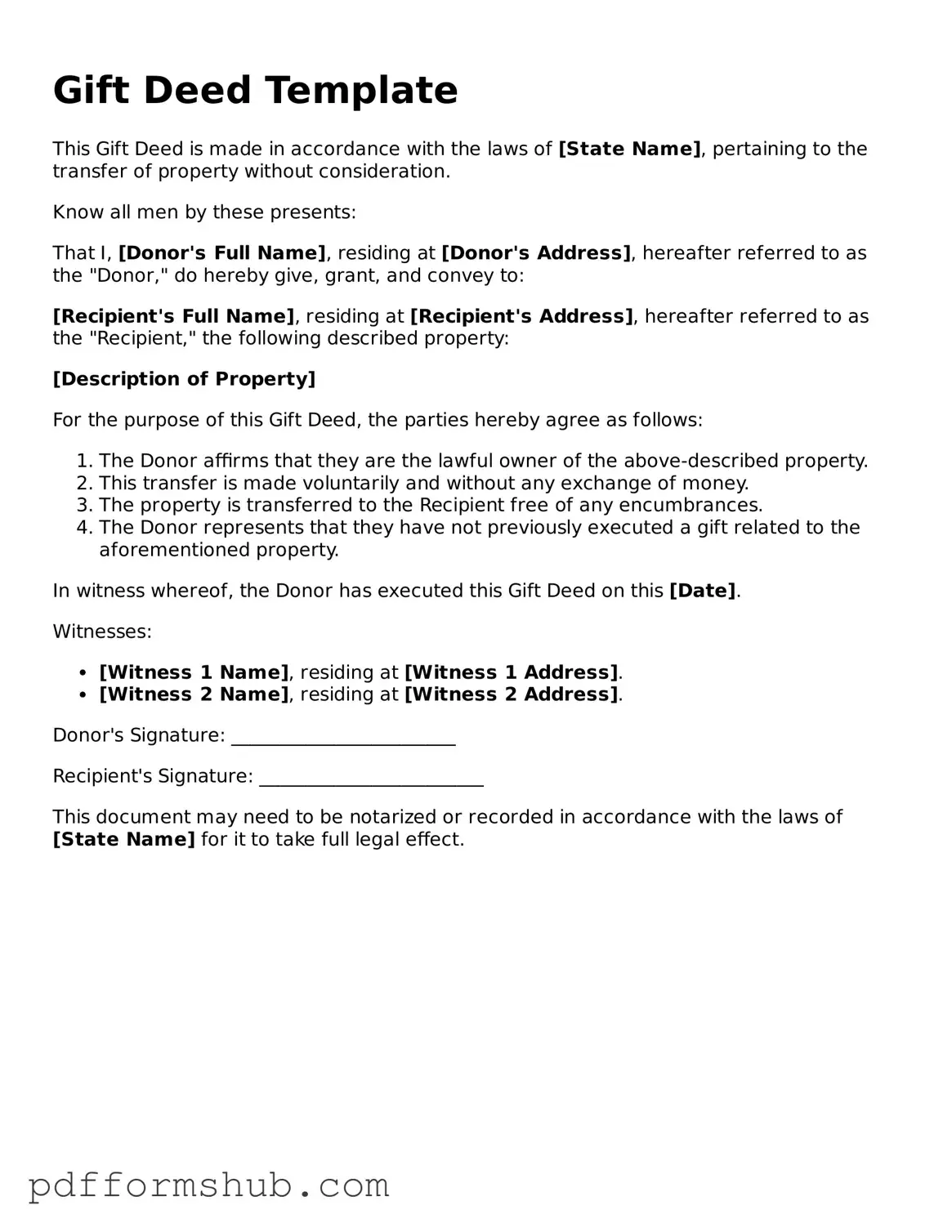Valid Gift Deed Form
A Gift Deed is a legal document that facilitates the transfer of ownership of property or assets from one individual to another without any exchange of money. This form outlines the intent of the giver to donate their property voluntarily and specifies the details of the transfer. Understanding how to complete this form correctly is essential for ensuring a smooth transaction.
To fill out the Gift Deed form, click the button below.
Customize Form

Valid Gift Deed Form
Customize Form

Customize Form
or
Free PDF Form
Short deadline? Complete this form now
Complete Gift Deed online without printing hassles.